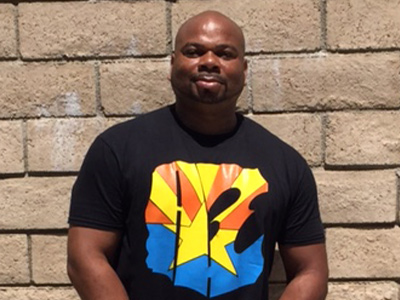
Khalil Rushdan
Granted Relief on the Claim of Vindictive Prosecution
The Federal District Court overturned Khalil Rushdan’s conviction on evidence of vindictive prosecution. Khalil was convicted March of 1997 in Pima County for 1st degree felony murder. He was sentenced to life in prison with the possibility of parole after 25 years.
In November of 1993, Khalil had introduced a drug seller to a drug buyer and departed. Unbeknownst to Khalil, the buyer and his 2 friends decided to rob the seller by killing him and taking the drugs. Later, Khalil returned to the house and found the buyer/killer moving the seller’s lifeless body to the car.
When the victim’s body was found, police turned to Khalil for help in the investigation. Khalil cooperated and led police to the buyer / killer. Meanwhile, Khalil and his family received death threats. Police and the prosecutor promised to protect Khalil, but did not.
The killer went to trial on robbery and murder. Khalil had not been subpoenaed and therefore was not present to testify at the killer’s trial. The killer was acquitted. Prosecutor Ken Peasley, angry with losing the case, turned around and filed a first degree murder charge against Khalil.
Khalil decided to exercise his constitional right not testify, which angered the prosecutor.
Ultimately, the District Court granted relief to Khalil on the claim of vindictive prosecution, finding:
- “It is clear Khalil was prosecuted for no other reason” than Khalil’s decision to exercise his constitutional right to not testify which resulted in the acquittal of the real killer.
- Prosecutor failed to advise Khalil of his constitutional rights – specifically his right to an attorney to advise him on any potential criminal charges related to the drug transaction.
- Prosecutor failed to grant Khalil immunity in exchange for his statements against the killer – which composed the state’s case.
- Police and prosecutor promised to protect Khalil’s family from death threats – but never gave any protection.
- Police promised Khalil would not go to jail.
- Police gave Khalil untimely and inadequate Miranda warnings.
The court noted that vindictive prosecution cases always involve circumstances where the prosecution is acting within its power; but, it’s his / her motive for charging that is at issue. The court went on to say, “Here, by playing fast and loose with the truth and a man’s constitutional rights, Peasley [prosecutor] lost his star witness and Sandford [real killer] walked out a free man.